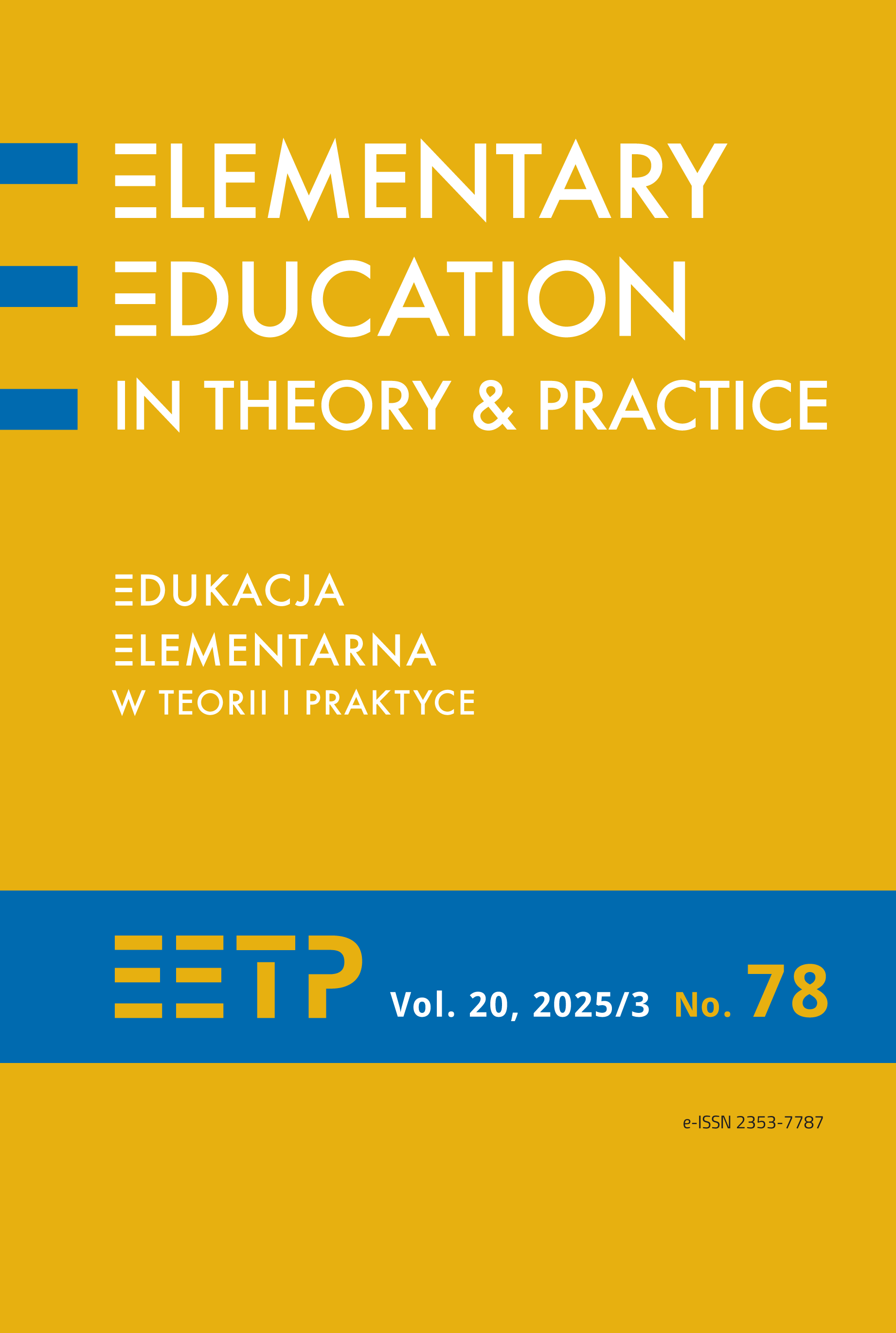Processing Speed and Academic Success: A Qualitative Inquiry into Teachers’ and Parents’ Perceptions
Abstract
In the article, the construct of mental speed is analyzed as a biologically predetermined basic cognitive construct. It presents results of research aimed to investigate the relationship between motor/mental speed and pupil school performance from the view of teachers and parents. Applying procedures of the qualitative research paradigm, the central method of data collection was a semi-structured interview with 17 teachers and 10 parents of pupils with extreme (both high and low) values of mental and motor pace. Data analysis of interviews with teachers brings information on stereotyping pupils with a higher mental and motor pace. In their teaching practice, teachers do not reflect enough on pupils’ different mental and motor pace. There are almost no modifications of the curriculum, levels of task difficulty, differentiation of assignments e. g. by cognitive demands of assignments. Also, a connection was revealed between both teachers and parents’ self-perceived temperamental types and the type of attitude towards children with a low mental pace.
References
Bogdanowicz M., Kalka D., Karasiewicz K., Radtke B.M. & Sajewicz –Radtke U. (2008), Diagnoza przyczyn niepowodzeń szkolnych. Podręcznik, Program Sąsiedztwo EU. Gdańsk: Uniwersytet Gdański.
Delis, D. C., Kaplan, E. & Kramer, J. H., 2001. The Delis-Kaplan executive function system. San Antonio: The Psychological Corporation.
Kovalčiková, I. & Miecznik-Warda, J. (2022). Szybkość motoryczna i szybkość umysłowa jako wyznaczniki szkolnych osiągnięć ucznia. Krakow: Petrus.
McAuley, T. & White, D. A. (2011). A latent variables examination of processing speed, response inhibition, and working MeMoSy during typical development. Journal of Experimental Child Psychology, 108(3), 453-468. https://doi.org/10.1016/j.jecp.2010.08.009
Md Hassan, N. & Rahman, S. (2017). Problem Solving Skills, Metacognitive Awareness, and Mathematics Achievement: A Mediation Model. The New Educational Review, 49(3), 201-212. https://doi.org/10.15804/tner.2017.49.3.16
Moore, A. L., Miller, T. M., Moore, J. J. & Ledbetter, C. A. (2023). Real-World Data Study on the Impact of the ReadRx Cognitive Training and Reading Intervention on Cognition, Basic Reading Ability, and Psychosocial Skills for 3,527 Children. Psychology Research and Behavior Management, 16, 1195-1220. https://doi.org/10.2147/PRBM.S397665
Nuño, L., Gómez-Benito, J., Carmona, V.R. & Pino, O. A. (2021). Systematic Review of Executive Function and Information Processing Speed in Major Depression Disorder. Brain Sci. 2021, 11, 147. https://doi.org/10.3390/brainsci11020147
Prokhorov, A., Yusupov, M.G. & Plokhikh, V. (2015). Cognitive states in the process of students’ intellectual activity. The New Educational Review, 41(3), 263-274. https://doi.org/10.15804/tner.2015.41.3.21
Roberts, R. D. & Stankov, L. (1999). Individual differences in speed of mental processing and human cognitive abilities: Toward a taxonomic model. Learning and Individual Differences, 11(1)https://www.sciencedirect.com/journal/learning-and-individual-differences/vol/11/issue/1, 1-120. https://doi.org/10.1016/S1041-6080(00)80007-2
Silva, P. H. R. D., Spedo, C. T., Baldassarini, C. R., Benini, C. D., Ferreira, D. A., Barreira, A. A., & Leoni, R. F. (2019). Brain functional and effective connectivity underlying the information processing speed assessed by the Symbol Digit Modalities Test. Neuroimage, 184, 761-770, DOI: https://doi.org/10.1016/j.neuroimage.2018.09.080
Tsai, Y. J., Huang, C. J., Hung, C. L., Kao, S. C., Lin, C. F., Hsieh, S. S., & Hung, T. M. (2019). Muscular fitness, motor competence, and processing speed in preschool children. European Journal of Developmental Psychology, 17(3), 415–431. https://doi.org/10.1080/17405629.2019.1661835
Copyright (c) 2025 Elementary Education in Theory and Practice

This work is licensed under a Creative Commons Attribution-NoDerivatives 4.0 International License.
- When submitting a text, the author declares that he/she is the Author of the article (hereinafter referred to as the “Work”) and:
- he/she owns the exclusive and unlimited copyright to the Work,
- is entitled to dispose of the copyright to the Work.
Declares that it does not infringe any third party copyrights or legal rights.
Declares that there is no conflict of interest.
2. At the same time, the Author grants the Ignatianum University in Cracowa royalty-free, non-exclusive and territorially unlimited licence to use the Work in the following fields of exploitation:
- recording the Work in a hard copy, as well as on a digital or magnetic medium;
- reproduction of the Work using any technique, without limitation of the number of editions or copies;
- distribution of the Work and its copies on any medium, including marketing, sale, lending, and rental;
- introduction of the Work into a computer memory;
- disseminating the Work in information networks, including in the Internet;
- public performance, exhibition, display, reproduction, broadcasting and re-broadcasting, as well as making the Work available to the public in such a way that everyone can have access to it at a time and place of their own choosing;
- within the scope of dependent rights to the Work, including in particular the right to make necessary changes to the Work resulting from editorial and methodical development, as well as to translate the Work into foreign languages;
The licence is granted from the moment of the transfer of the Work to the Ignatianum University in Cracow. The Ignatianum University in Cracow is entitled to grant further sub-licences to the Work within the scope of the right granted. The licence is time-limited and it is granted for a period of 15 years, starting from the date of its granting.
Authors are permitted and encouraged to publish their text online (e.g. in their institution’s repository or on the institution’s website) before or during the submission process as this may lead to beneficial exchanges, as well as earlier and greater citation of the published text (See The Effect of Open Access). We recommend using any of the following portals of research associations:
- ResearchGate
- SSRN
- Academia.edu
- Selected Works
- Academic Search




